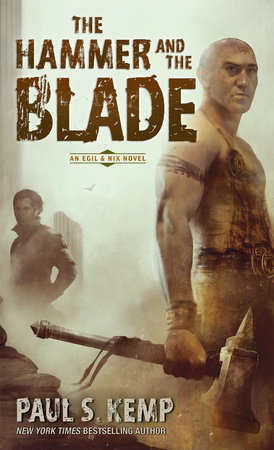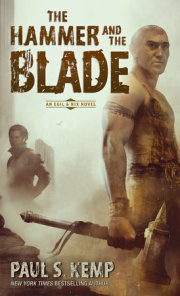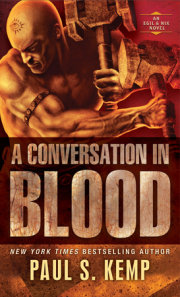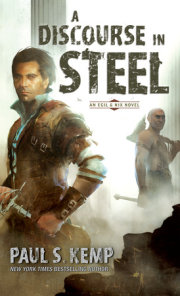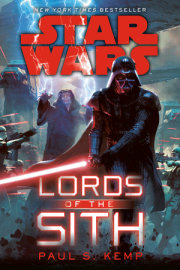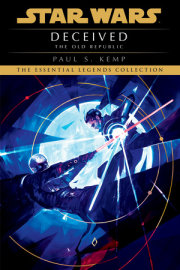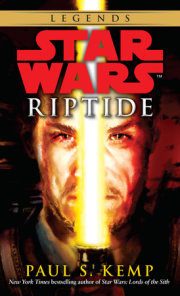CHAPTER
ONE
Rakon strode the halls of the manse, worry tearing a ragged edge on his emotions. The few servants who were allowed in this part of the dilapidated manse must have heard his approach and scurried out of his path, for he saw none. Floors creaked under his tread. Dust misted the air. He climbed the circular staircase of the manse’s western tower until he reached the thick wooden door of his summoning chamber. He spoke the infernal words that suspended the protective wards, opened the door, and walked through into the room beyond.
The roof on the corner of the house had been removed generations ago to expose the room to the elements, lay it bare to the sky and the lines of the world’s power. The bare beams looked like ribs, as if the house were decomposing, though Rakon’s sorcery preserved the wood and tile and plaster from rot.
A waxing, gibbous Minnear peeked over the horizon line, casting the world in viridian. Kulven, the larger pale moon, managed only a waning crescent high above. Stars and planets winked in the vault of the sky, their relative locations a map of time and place to those, like Rakon, who knew how to read them. And they told him the Thin Veil was near. When Minnear turned full, the walls between worlds would be at their weakest.
And still no herald.
He looked to the sky--behind--the--sky and found Hell, a distant, blinking red dot in the central eye of the secret constellation, Vakros the Feeder. He stared at it in worry for a long while. The Pact would fail if not consummated during the Thin Veil. And he could not allow it to fail.
On the wood--planked floor at his feet, inlaid lines of lead formed glyphs of power, the symbols with which he did his work: a thaumaturgic triangle, a pentacle, a source--oval for elementals, a binding circle. He walked over the arcana, heedless in his worry.
In the center of the round chamber stood a stairway, supported by elaborate scaffolding. Thirteen stairs led up to a raised octagonal platform, atop which sat a simple metal lectern, rusted from exposure to the rain. He ascended the stairs, speaking in Infernal the number of each stair as he stepped over its riser. The recitation gathered energy to his locus. The wind picked up, gusted.
He stepped to the lectern, took a candle and a stick of incense from a compartment beneath it. The incense, made from the mottled brown leaves of the flesh flowers of Hell, felt greasy in his fingers.
A word of power and a minor cantrip ignited the candle, though he held the incense in reserve. He incanted the thirty--nine verses of an abjuration, a demand of the King of the Air to send him a sylph, a spirit of the air who trucked in the information carried by the winds of the world.
The wind swirled around him in response to his incantation, collecting his words and carrying them to the outer reaches of Ellerth, to the pillars that held the world aloft in the vault of night. The King of the Air would heed the call, backed as it was by the Pact with the Thyss.
He ended his incantation, waited, and soon the wind gusted more strongly, buffeted his robes, his hair. The candle flame flickered and danced, but his power kept it lit. Behind the wind’s rush, he heard the faint titter of an invisible spirit.
“The King has heard your call and sent me for answer,” said a high--pitched voice.
“You are fortunate, then,” Rakon said, and held the flesh flower incense aloft.
The sylph gave a greedy gasp. The wind keened.
“You know what this is, then?” Rakon asked.
“Burn it,” said the sylph, excitement in its tone, the winds swirling. “Let me taste its aroma.”
“Only after I’ve had truth from you.”
“Truth you shall have, Rakon Norristru. Ask! Ask!”
“The Thin Veil is upon us and no herald has arrived from Hell to prepare the way for Vik--Thyss. Why?”
The wind died to a breeze and the sylph’s voice fell to a whisper.
“Vik--Thyss? Vik--Thyss is dead. His death has been in the wind for many days.”
Surprise stole Rakon’s speech. Finally, he stuttered, “You . . . you promised truth, sylph! This—-”
“Is truth! I swear it! Vik--Thyss is dead, or so say the Afirion winds. Now burn it!”
“Silence,” Rakon said, and tried to control his beating heart. He clutched at the lectern in a white--knuckled grasp. Vik--Thyss’s death put the Pact at risk. And if the Pact failed . . .
In his mind’s eye, he saw the family’s power foundering, saw House Norristru losing what wealth it still possessed, its seat on the Merchants’ Council. He saw himself losing his position as Adjunct to the Lord Mayor, saw his many enemies emboldened, coming for him. He had ordered murders over the years, many murders. He had bound spirits and elementals, destroyed some. Absent the Pact with House Thyss, he would be quickly dead and his house annihilated. His own sorcery would not be enough to preserve them.
“How did this happen?”
“I don’t know,” the sylph answered, and Rakon heard the truth in it.
“Find out,” Rakon said. “Now.”
He needed to know if one of his enemies was moving against him by trying to destroy the alliance with Hell.
The sylph keened with frustration, swirled around the incense, and was gone.
Rakon remained on the platform, the air still, but his thoughts chaotic. Vik--Thyss had sired Norristru offspring for centuries. The matings had consummated the Pact and provided heirs to both the Norristru and the Thyss. Without Vik--Thyss . . .
He looked off to the east, toward the city that housed his many enemies. The Norristru manse was built atop a tall escarpment, and from that lofty perch looked down on Dur Follin’s crumbling walls from more than half a league away. The moonlight afforded him a clear view.
The city straddled both sides of the wide, torpid River Meander. The glowing dots of the city’s streetlamps blinked at him like fireflies. The temple domes of Orella, the narrow spires of the Lord Mayor’s extravagant palace, and the great water clock of Mad Ool jutted into the night sky, their height unusual among the otherwise one-- and two--story patchwork decrepitude of Dur Follin’s urbanscape.
Minnear’s light reigned viridian over the city. Barges and scows clustered along the city’s countless piers, torches and lanterns glowing on their decks. Above all towered the Archbridge, an ancient stone expanse that stretched across the river, linking Dur Follin’s two halves, the origin of its construction lost to the ages. Only Ool’s clock compared. Master masons made pilgrimages across Ellerth to see the Archbridge.
Orange and green pyrotechnics exploded in the air off the side of the bridge, some nameless cult celebrating this or that, the whistles and pops audible even at a distance. Scores of churchless cults and apostate philosophers held worship on the Archbridge, littering its length with the detritus of belief. The monumental size of the bridge, its awe--inspiring construction, seemed to draw the faithful. Common parlance called it the Road to the Heavenly Spheres.
The pyrotechnics left a fading afterimage in the sky, a few puffs of smoke, the ghost of a celebration. A westerly wind blew, brought with it the faint stink of the Deadmire, the expansive, ruin--haunted swamp south of the city.
Rakon eyed the city for a long while, the maze of its buildings and politics a puzzle for him to solve. His mind moved through the faces of the men and women who’d kill him if they had the chance. He realized quickly that they’d become too many to count. They blurred in his thoughts into one collective countenance of hateful vengeance.
A sudden thought gave him pause. Might the Lord Mayor himself have moved against Rakon? Could Rakon’s mind--numbing spells on the Mayor have weakened enough to allow the fat fool independent thought?
Before he could chase the thought further, the wind picked up and the sylph’s voice gave him a start. “There are corpses in the breeze. The Deadmire is awash in bodies. Ancient bodies and old memories.”
Rakon glared at the empty place in the air from which the voice had originated. “Tell me what you’ve learned.”
“An ancient breeze in Afirion had the tale of the devil’s death. Vik--Thyss was slain by Egil Verren of Ebenor and Nix Fall of no god, whose names are known on earth, in the air, and to the knowledgeable in Hell.”
Rakon knew the names, too, though only vaguely. He’d heard them in tavern tales and gossip, along with many other such rogues, adventurers, and tomb robbers who sometimes called Dur Follin home.
“Continue. Were they hired to kill Vik--Thyss? If so, by whom?”
“I think not. They killed Vik--Thyss while robbing the tomb of Abn Thahl. They triggered a binding even older than the Pact you hope to preserve, a binding that summoned Vik--Thyss, whom they subsequently slew.”
At that Rakon felt some measure of relief. Vik--Thyss’s death had been chance, not the result of the machinations of his enemies. He could still salvage the situation if he could find a way to honor the Pact before Minnear waxed to full and Kulven waned new.
“I need another true son of House Thyss,” he muttered, more to himself than to the sylph.
“Indeed you do,” the sylph said, tittering. “One of the half--breeds born in this house, perhaps?”
Rakon made a dismissive gesture. “A true son of the Thyss. Not a cambion. Name the other Thyss sons, sylph. There’s where preservation lies.”
A soughing wind, then, “House Thyss is empty of males.”
“What? That . . . cannot be. You lie!”
“I spoke truth, Rakon Norristru.” The spirit giggled. “The air around you stinks of terror. Do you fear for your life?”
Rakon swung his hand through the air, a futile gesture that only summoned more giggles from the sylph. He reined his emotions and replayed all he knew, considered with care the sylph’s exact phrasings. The spirits of the air enjoyed toying with sorcerers.
House Thyss is empty of males.
“The incense, Rakon Norristru!” the sylph entreated.
House Thyss is empty of males.
The answer was right there.
“You said House Thyss is empty of males. But do any Thyss sons live elsewhere?”
The wind blew and the sylph giggled. “I am caught!”
Rakon glared at the empty sky. “Speak, sylph! Tell me all you know.”
“Abrak--Thyss, brother to Vik--Thyss, was imprisoned on Ellerth long ago, summoned by the Great Ward. He is not dead. But neither is he free. He is the only true son of the Thyss that still lives.”
Rakon grabbed at the words, his hope renewed. “Imprisoned where, precisely?”
“What matter? He knows nothing of your Pact. It was made long after his imprisonment.”
“He’ll honor it, sylph. His blood requires it. Now tell me, where is he?”
“Alas,” the sylph sighed. “There are no winds old enough to tell the specifics of Abrak--Thyss’s fate. I hear only echoes in the wind and I’ve told you all they say. I don’t know the location of his prison.”
Rakon raised a fist. “If you are lying, sylph—-”
“I promised truth, Rakon Norristru, and truth you’ve had, though bent to my amusement for a moment. Now, burn the incense as you promised.”
Rakon figured he’d learned all there was to learn from the sylph. He’d keep his bargain. He always kept his bargains.
“Very well.”
Absently he put the candle’s flame to the stick of incense. Foul, thick smoke spiraled into the air, collected in a cloud around the sylph. For a moment, Rakon glimpsed an outline of the sylph’s current form in the smoke: a large sphere covered in hundreds of thin tendrils, flailing in the smoke.
“I may need to speak with you again, sylph,” he said. “Answer when I call.”
The sylph, lost in the odor of the incense, made no answer, but the breeze hummed with delight.
Rakon left the sylph to its ecstasy, turned, and descended the stairway, heavier with worries than he’d been when he ascended them. He tried to focus his mind on what he must do. He would pore over the tomes in his library, consult with every spirit in the spheres, and discover the location of Abrak--Thyss’s prison. Knowledge of it had to exist somewhere. He’d find it and do whatever was necessary to preserve the Pact.
He had fifteen days.
He hurried through the dusty halls of the manse, the floors creaking under his feet. Years of filth stained the faded, peeling paint and cracked plaster. Trappings of the family’s once--great wealth decorated the hall, the foyer, the library—-lush tapestries, sculpture, thick carpets from Vathar—-but the age of it struck him now, all of it old, tattered, tarnished. The house had fallen far, its wealth spent on tithes to Hell and the exotic ingredients and creatures needed to further magical pursuits through the generations. Under Rakon’s stewardship the house had finally gained the power its patriarchs had sought for generations, but in the process he’d emptied it of wealth. He’d turned it into a shell.
Portraits of previous Norristru fathers hung from the walls in the grand hall—-all of them similar in appearance to Rakon: narrow faces, overlarge mouths, thin lips, and deep--set, accusatory eyes that stabbed holes of envy into whatever they looked upon.
He walked past doors behind which foul things had occurred in years past, until he reached the door to his sisters’ chambers, his accursed, dangerous sisters.
He stopped, stared at the door a moment.
What was he doing there? He had work to do, knowledge to gain. His feet had carried him to his sisters unbidden.
The need to see them had crept up on him like a slow fever, but now had firm hold. He licked his lips and skulked down the hall, hoping his sisters were asleep. He hadn’t the strength to fight with them again. He just wanted to make certain they were there, confirm that his grip was not slipping from everything, that he still controlled something.
As he neared the door he walked with a furtive tread, as if approaching a sleeping beast. He put his ear to the enspelled wooden slab but heard nothing from within. After composing his mental defenses, he took the charmed brass key from the folds of his tunic, whispered a word of awakening over it, and with it opened the lock. When he heard the soft click, when he felt the wards subside, he pulled it open.
Fetid, organic air wafted forth. He imagined it loamy with ideas, carrying thoughts on unseen currents, free--floating notions waiting for someone to bump into them and think them their own. Sometimes after leaving his sisters he wondered whether the thoughts he carried with him were his own or something they’d pushed into his mind.
Could they even do that? He didn’t know for certain.
And how would he know? Did a thought of theirs in his head feel different than a thought of his own?
He shook his head to clear it of such thinking.
He leaned into the room and could have touched the back of the enormous, bald eunuch who stood guard just within. The barrel--shaped man wore tent--sized pantaloons and a shirt and leather jack stained with sweat. A wooden truncheon hung from his belt, a large curved knife, and a reel of thin line.
The eunuch did not acknowledge Rakon’s presence, though he must have heard the door open. His eyes stayed on the room, as they should. He was a jailer, his sole duty to ensure that Rusilla and Merelda neither left their chamber nor harmed anyone or themselves.
A slit at the base of the eunuch’s skull still seeped pink pus, the wound a consequence of Rakon’s chirurgy. Perhaps it would never heal. After scalpel and spell had severed the eunuch’s brain from body, Rakon had filled the fleshy shell with a memory eater. The incorporeal spirit controlled the body with intangible tendrils while it made a slow meal of the eunuch’s memories. In exchange for a captive feast, the eater allowed a binding that made it a perpetual guardian for Rusilla and Merelda, its alien intelligence immune to their mind magic.
Rakon wondered in passing how much of the eunuch still existed. He hoped none, though he could not help but imagine the eunuch’s consciousness caged in the cell of his own mind, railing at his captivity. He could think of few worse fates than a magical bifurcation, the slow death of a mind in a body no longer controllable by it.
“Are they asleep?” he whispered in the eunuch’s ear.
The huge man did not turn. The memory eater caused the eunuch to shrug.
Embers from the large hearth cast the windowless chamber in soft light and deep shadows. Furs and polished woods abounded: twin beds, wardrobes, overstuffed chairs.
He did what he could to provide for their comfort.
Copyright © 2015 by Paul S. Kemp. All rights reserved. No part of this excerpt may be reproduced or reprinted without permission in writing from the publisher.

